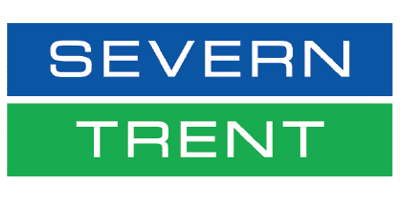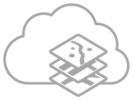Tackling water leakage during lockdown
When its offices closed and employees were forced to work from home during the COVID-19 lockdown, Severn Trent Water launched an innovative crowdsourcing app to help it tackle the challenge of water leakage. Used by 200 employees, the ArcGIS-based solution enabled the company to improve the accuracy of its water leakage data, increase the effectiveness of its leakage detection activities and target significant increases in revenue.
Collector App for ArcGIS allows employees to easily find void properties and complete walk-by surveys
Esri’s Operations Dashboard provides a real-time, visual overview of surveys completed and the data collected
The solution was created by Severn Trent Water’s in-house GIS team in just a few days
The Challenge
Around three billion litres of water are lost from the water network in England and Wales every single day. Consequently, the water industry regulator, Ofwat, has asked all water companies to commit to reducing leakage by at least 16% between 2020 and 2025. Most leakage occurs when aging pipes deteriorate or burst, but a significant amount of the water that is recorded as lost has actually been consumed by properties incorrectly listed as being unoccupied.
In one of many activities to tackle the leakage challenge, Severn Trent Water previously asked employees to visit properties listed as unoccupied (or ‘void’) near where they lived or worked and verify the occupancy status. However, equipped with paper print-outs of maps and using basic spreadsheets, the team of volunteers only managed to survey just over 1,500 properties during the three month project.
“In challenging business conditions, we made the most of our Esri software to deliver an app that added tremendous value for the organisation.”
Richard Walwyn, Head of Innovation and Asset Intelligence at Severn Trent Water
The Solution
When the UK went into lockdown, as a result of the COVID-19 pandemic, the majority of Severn Trent Water’s employees had to work from home. The organisation wanted to find a way to optimise employees’ time during this difficult period, by enabling them to volunteer to survey void properties in their permitted daily hour of exercise.
Using Esri’s ArcGIS Online and Collector App for ArcGIS, Severn Trent Water created a mobile app that allows employees to view the recorded locations of all void properties on an interactive map on their smartphones. Employees then use an edit function and drop down boxes to record whether each property is a) clearly occupied, b) clearly unoccupied or c) the occupancy status is unclear.
All of the data collected via the mobile app is uploaded in real-time to an Esri Dashboard, where managers can visualise the survey results. During lockdown, Severn Trent Water used Microsoft Yammer, a social media platform for workplaces, to share data from the Esri Dashboard privately with all of the company’s employees in regular updates. The organisation was able to gamify the use of the app by posting who had done the most surveys in a day or a week and who had covered the most distance.
Severn Trent Water built this ArcGIS solution within just a few days. “This is a great example of innovative thinking at Severn Trent Water,” says Richard Walwyn, Head of Innovation and Asset Intelligence at Severn Trent Water. “In challenging business conditions, we made the most of our Esri software to deliver an app that added tremendous value for the organisation.”
“ArcGIS has given us a better understanding of what is genuine leakage and what is not.”
Richard Powell, Asset Information and Insights Management Lead at Severn Trent Water
Benefits
550% increase in surveys undertaken
The introduction of the ArcGIS app has enabled Severn Trent Water to survey 550% more void properties in the same period as was possible using the prior paper-based approach. Over three months, 200 volunteers succeeded in surveying over 8,000 properties, whereas the company had only surveyed just over 1,500 properties in three months previously. The app is much easier to use than the paper-based survey method and eliminates the time-consuming manual task of typing up the data recorded on paper.
38% of ‘empty’ properties identified as occupied
Of the 8,255 void properties surveyed using the ArcGIS app, 3,141 – or 38% – were identified as being occupied. Severn Trent Water could therefore improve the accuracy of its leakage data and reduce the volume of water recorded as ‘lost’ that is actually being consumed by households or businesses at properties incorrectly listed as being empty.
More effective detection of genuine leaks
With more accurate information about void properties, Severn Trent Water can now improve the efficiency of its specialist leakage detection teams. Instead of wasting time looking for leaks that are in fact caused by household consumption, they can focus on detecting hard-to-find underground leaks. “ArcGIS has given us a better understanding of what is genuine leakage and what is not,” says Richard Powell, Asset Information and Insights Management Lead at Severn Trent Water. “We can then focus our resources in the right places to detect leaks more quickly and play our part in helping the water industry to reduce water wastage.”
Increased revenues of up to £1 million
While this was not the main driver for the initiative, Severn Trent Water has calculated that it could increase its revenues by £1 million, if all of the 3,141 properties identified as occupied start paying for their water. However, Severn Trent Water’s initial priority is to obtain the correct contact information for each property, so that the organisation knows who to contact in the event of a service interruption, water quality issue or other unforeseeable emergency. Severn Trent Water will also be able to support any households that might struggle to pay their water bills, through a range of schemes and trust funds.
Positive employee morale during the lockdown
Finally, it is important to note that employees enjoyed using the ArcGIS app and had fun participating in the initiative during what was very difficult time for many of them. “The initiative gave employees a purpose and encouraged them to go outside and get some exercise, helping to improve their mental health and wellbeing,” Powell says.



